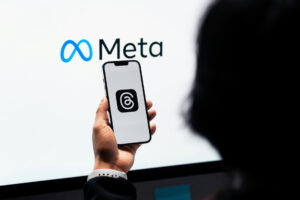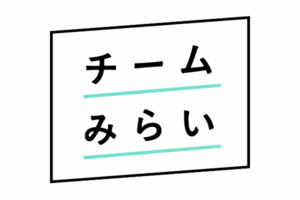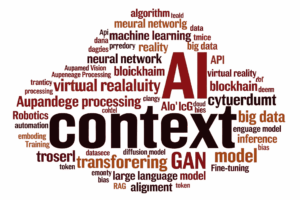The AI Supremacy Battle: Zuckerberg's Strategy of Imitation and Acquisition
Hi, I'm Tak@, a system integrator who enjoys developing web services using generative AI in my spare time.
Did you know that in today's tech industry, an unprecedented amount of capital and talent are being moved around like chess pieces, all guided by one person's strategy? This strategy often involves imitating other companies' ideas, poaching key talent, and then repeating the process.
Here's a tweet from Sam Altman, CEO of OpenAI, regarding Meta's strategy:
Zuckerberg's Keen Eye on AI: A Strategy of Imitation and Acquisition
Working daily with generative AI tools, I'm constantly amazed by their limitless potential. However, on the business front, a completely different approach is unfolding. I see Meta's AI strategy, led by CEO Mark Zuckerberg, as squarely focused on imitation and acquisition.
Zuckerberg has built massive platforms like Facebook, Instagram, and WhatsApp. Behind their success lies a history of incorporating rivals' superior ideas to establish Meta's market dominance. Features like Stories, Reels, and Threads, for instance, were inspired by other services. Now, this "imitate, poach talent, and repeat" tactic is being deployed in the new battlefield of AI.
Meta is aggressively recruiting talent and acquiring companies to catch up with AI pioneers like OpenAI, Google, and DeepSeek. They are clearly aiming to strongly assert their continued importance in the AI sector to both the industry and investors.
Falling Behind in the AI Race and the Urgency
Why is Zuckerberg so intensely focused on acquiring from others? It's because Meta's current AI technology is significantly lagging behind its main competitors.
Meta's AI assistant, Meta AI, is nowhere near the performance of advanced models like OpenAI's GPT-4o, Google's Gemini 2.5 Pro, or DeepSeek's R1. While these competing AIs can perform high-level intellectual tasks such as reasoning, planning, and problem-solving, Meta's AI remains at the level of a general chatbot. It cannot handle complex reasoning or planning, thus failing to deliver practical solutions.
Furthermore, Meta's perceived sole advantage—offering free, open AI models—might disappear as the possibility of OpenAI's next-generation models becoming open source emerges.
The slowdown in ad revenue, Threads' struggles, Instagram losing ground to TikTok, and OpenAI's move toward social networking, which threatens Meta's stronghold—these combined factors suggest that Zuckerberg believes there's no time to wait for in-house technological development in the AI race.
Acquiring Talent and Technology: AI Superintelligence Units and Massive Investments
Zuckerberg's strategy clearly embraces the mission to "build AI systems smarter than humans." To achieve this, he seems determined to gather all necessary "stones" (talent and technology).
Poaching Key Talent and Investing in Startups
In recent weeks, Meta's AI team has been exceptionally active. For instance, they recruited Alexander Wang, co-founder of Scale AI, and announced the establishment of an "AI Superintelligence Unit." Moreover, they're offering compensation packages exceeding $100 million (approximately ¥15 billion JPY) to top researchers from OpenAI and Google. From my perspective, such colossal offers have the power to disrupt existing organizational cultures and loyalties.
Meta is also actively pursuing acquisitions and engagements with startups. They've invested $14.3 billion in Scale AI and are reportedly in acquisition talks with PlayAI, a company developing natural human voice reproduction technology. They're also apparently in discussions with other influential AI companies like Perplexity AI, Rybway, Ilya Sutskever's Safe Superintelligence, and Mira Murati's new lab, "Thinking Machines." It's almost as if they're frantically buying everything off the shelves in the "AI Industry Shopping Mall" before they're gone!
Meta has already secured prominent researchers such as Lucas Beyer, Alexander Kolesnikov, Xiaohua Zhai (formerly of OpenAI), Trapit Bansal, and Jack Rae (formerly of Google DeepMind). However, reports also indicate they've failed to poach some key talents, including OpenAI's Noam Brown and Google's Koray Kavukcuoglu.
Criticism from OpenAI CEO Sam Altman
Sam Altman, CEO of OpenAI, has offered a sarcastic critique of Meta's strategy. According to his remarks, Meta's approach is simply to "copy OpenAI, poach talent, and outspend everyone else."
Altman acknowledges that Meta views OpenAI as its biggest competitor but notes that their AI projects "haven't been going well so far." He further points out that Meta is even imitating OpenAI's user interface and criticizes Facebook (Meta) for "relying on manipulating people's attention."
Altman stated that OpenAI wants to be "the only tech company that is not at war with its users," emphasizing a contrast where Meta is trying to "hack people's brains" while OpenAI is "trying to help their brains."
I believe this highlights a difference in corporate philosophy—what values will guide AI development in an era where AI profoundly impacts society?
Personally, I've continued to develop tools as a hobby, finding pure joy in creating things that help people, such as the "AI Learning Planner" for efficient learning and goal achievement, and the "AI Automation Proposal Service" for streamlining work. This brings a deep satisfaction that mere imitation cannot provide. I, too, have always found joy in creating essential value rather than simply imitating. It reminds me of the days when I wrestled with complex COBOL code and solved problems from scratch.
SIer Perspective: "Innovation Power" vs. "Financial Power" in the AI Era
Zuckerberg has historically been the type to "catch up and win." This strategy proved successful in the world of social media, but in the realm of AI, victory hinges on "creativity" and "innovation power." Currently, Meta's biggest reported weapon is its "financial power." But can that alone truly win in an AI competition where new technology and creativity are paramount?
Moving Beyond Imitation and Towards Sustainable Development
In project management, concepts like "tailoring" a plan to fit the context and "building quality into processes and deliverables" are crucial. This means not just going through the motions but flexibly adapting to the specific project situation and aiming to create essential value.
Meta's "imitation and acquisition" strategy might, in the short term, fill capability gaps and accelerate market entry. However, in a rapidly evolving and societally impactful field like AI, there are varying views on whether this strategy will long-term produce "safe and useful technology" or merely result in outcomes that "don't significantly change the world as expected."
True AI capability isn't just about superficial "answers" but about intelligence that can "reason" and "solve problems." Building this from scratch requires a culture of deep thinking and iterative trial and error, something that simply imitating existing solutions cannot provide. For example, the PMBOK Guide emphasizes that project outcomes are "value," and creating that value requires effective collaboration with stakeholders and understanding system interactions.
For Meta's AI to evolve from a mere conversational partner into a more advanced "reasoning agent" and serve as the foundation for business assistants, customer support, and new consumer applications, I believe that not only technical depth but also a continuous questioning of what constitutes true value for users and society is indispensable.
Redefining "Success"
Zuckerberg might believe that by acquiring all potential winners, he cannot lose. However, as AI transforms society, privacy, and even the way we work, questions remain: What will this strategy bring to us consumers, and can it truly be called "success"?
Is what we truly seek from AI merely convenience? Or do we desire an AI that enriches our lives, helps us achieve our goals, and makes us feel like better versions of ourselves?
Conclusion: Choices in the AI-Woven Future
Zuckerberg's AI strategy is a highly aggressive approach, backed by financial and acquisition power, built on past successes. In the fierce competition of the AI era, he's leveraging his strongest tactic—"imitate, poach talent, and repeat"—into the new domain of AI to get ahead.
However, considering the immense impact of AI's evolution on society, the question arises: How much will a strategy solely aimed at "winning" contribute to our individual lives and the realization of a better society?
AI holds immeasurable potential, from assisting scientific discovery and boosting human productivity to creating new social experiences. As AI becomes deeply integrated into our lives, what kind of AI do you want to place your trust in? And will that AI simply be a "convenient tool," or will it become a "companion" that enriches our lives?
I believe that for each of us to ponder these questions now is critically important in shaping the future of AI.



